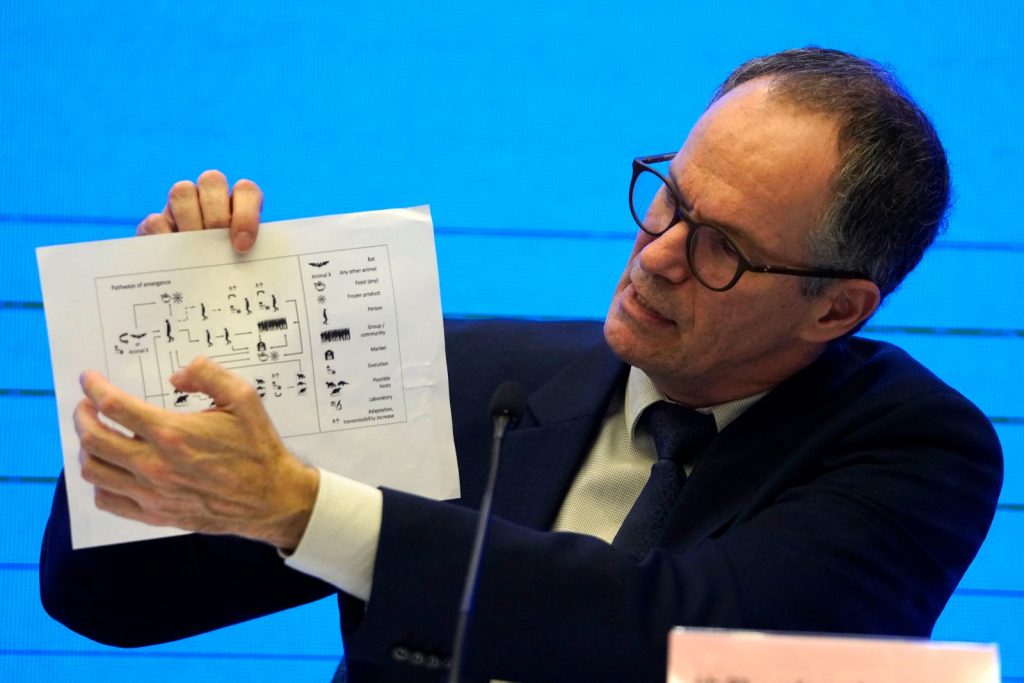At the end of the week, relations between China and the World Health Organization, which is still searching for the origin of the Corona virus, deteriorated. Far away is the leniency that the UN agency has shown Beijing for a year and a half.
Last month, WHO chief Adhanom Ghebreyesus began changing attitudes toward China. Long after rejecting the hypothesis that the coronavirus had leaked from a laboratory of the Institute of Virology in Wuhan, he and his colleagues suddenly admitted that such incidents “happen” and are “common”.
Then the World Health Organization asked China if it could conduct a second mission on its soil. Beijing was firmly against this.
And in recent days, tensions between the agency and China have grown even more.
‘There are no bats in Wuhan’
In a documentary broadcast on Danish Channel 2 on Thursday, a WHO researcher who went to Wuhan at the beginning of this year told his story. He stated that there was a lot of pressure on his team. According to him, the main concern of Chinese officials is what the World Health Organization will do in its final report with the hypothesis of a laboratory accident.
At first they wanted Nothing about the lab (in the report), because (With) I do not think so (incidentIt was possible, so they didn’t think it was necessary to waste time on itPeter Ben Mubarak said. “We insisted on including it because it is part of the whole question about the origin of the virus.”
The Danish scientist explains that his team was able to persuade the Chinese to raise the possibility, “provided that they do not recommend (further studies) for further investigation of this matter.”
In the end, WHO experts concluded in their report that this hypothesis was “the least likely”. They ranked it fourth and final, and the most likely scenario was contamination from an animal near humans.
Danish television, Ben Mubarak, expressed a theory in which the process of transporting animals and escaping from the laboratory is mixed. He said there are no wild bats in the Wuhan area. According to him, patient 0 could be an employee of the Wuhan Institute of Virology who had contact with a bat carrying the virus during his research.
However, the Danish scientist stated that it was only a hypothesis – which he considered “possible” – not to be verified because his team had “never had the opportunity to refer to the documents”. “We had a presentation and then we could talk and ask the questions we wanted to ask, and that was it,” he said.
“Not an exercise in political scoring”
In conjunction with the broadcast of this interview, the World Health Organization reiterated the request it made to China a few weeks ago. In particular, it stated that it needed “all the data” about Covid to investigate the hypothesis of a lab leak.
To this end, she called on all governments in the world to work together to expedite the investigation of the origins of Covid “in the spirit of partnership” and called for the situation to be “depoliticised”. In particular, she cited China and urged it to hand over its initial data on the first cases of coronavirus, which it described as “vital”.
The World Health Organization reiterates that researching the origin of the SARS-2 virus is not an exercise in blaming or scoring political points, and it should not be. To address the “lab hypothesis,” she said in a statement, it is important to access all data, take into account best scientific practices and consider mechanisms already in place by the World Health Organization.
provocative statement
As expected, China reacted negatively on Friday. The report said she refused to “follow policy” but supported scientific cooperation Global Times. Vice Foreign Minister Ma Zhaoxu said that China, for its part, will continue to conduct “additional follow-up and investigations” into the origins of Covid-19, as mentioned in the joint WHO report.
“The findings and recommendations of the WHO-China joint report have been recognized by the international community and the scientific community,” Ma said. This is a somewhat provocative statement, with many Western experts questioning the credibility of the report. They believe that China has influenced them greatly. This impression was confirmed by Ben Mubarak, one of the main shareholders this week.
Nearly two years after the first cases of the coronavirus appeared in China, the country appears to be working to break itself. It appears determined to prevent any further research in its field and thus attempt to make the animal-to-human transmission path (without any contact with the institute) the ultimate solution at the international level. While they make their fellow citizens believe, with far-fetched false news, that the coronavirus may have been born in… the United States.
(pound)
Read also:

“Total coffee specialist. Hardcore reader. Incurable music scholar. Web guru. Freelance troublemaker. Problem solver. Travel trailblazer.”







More Stories
GALA lacks a chapter on e-health
Weird beer can taste really good.
Planets contain much more water than previously thought